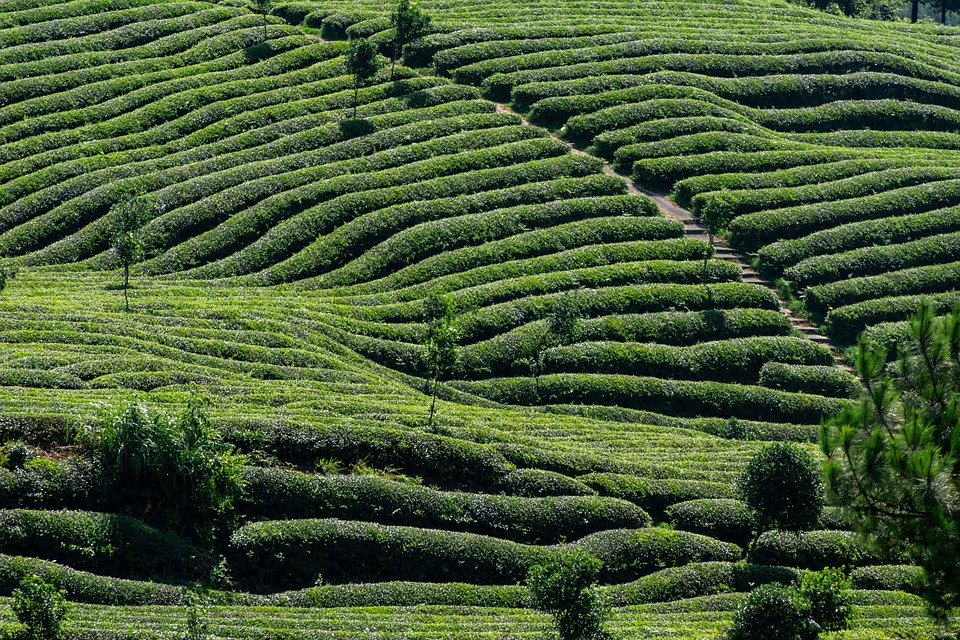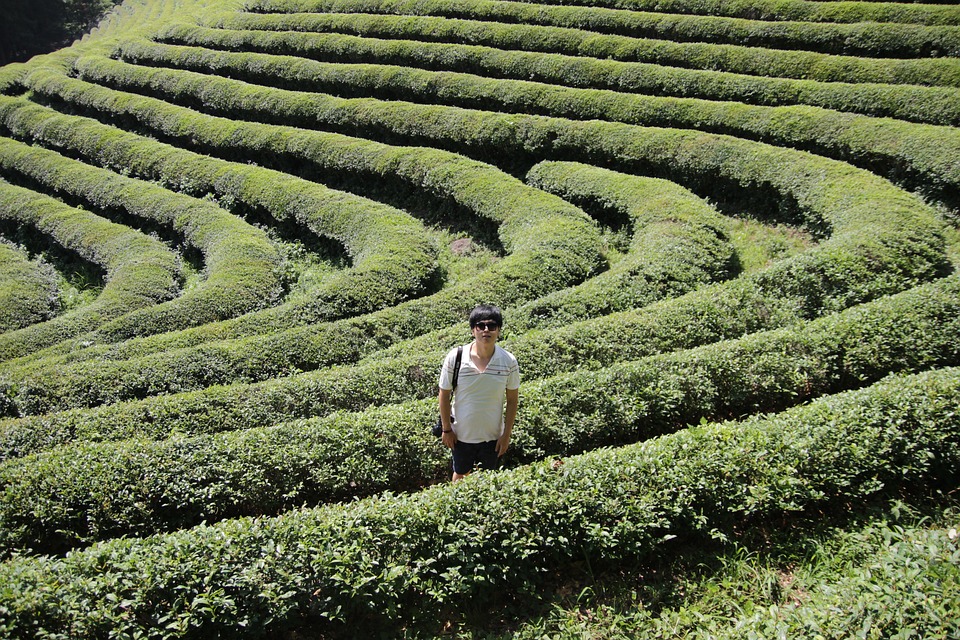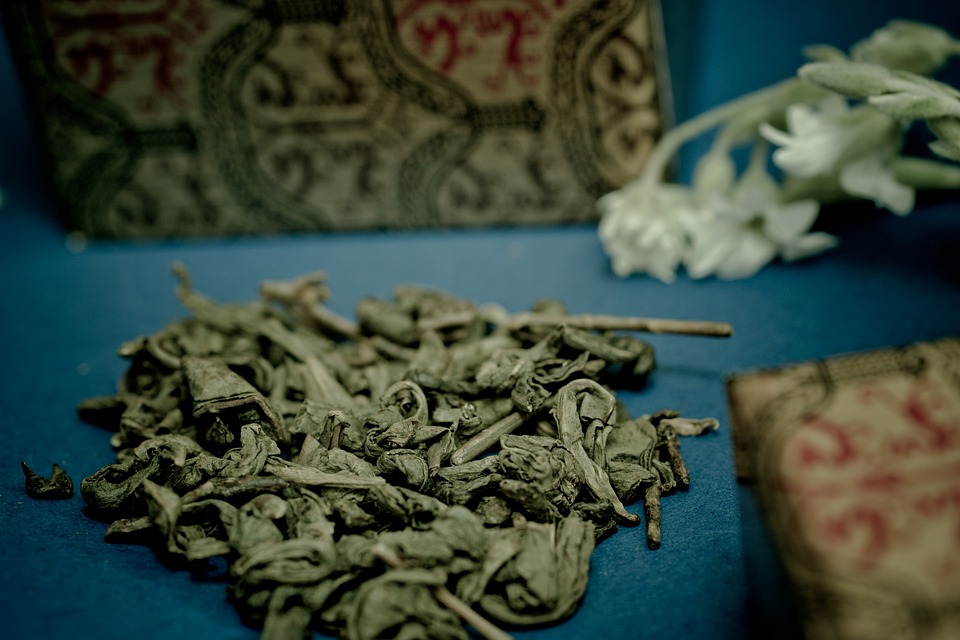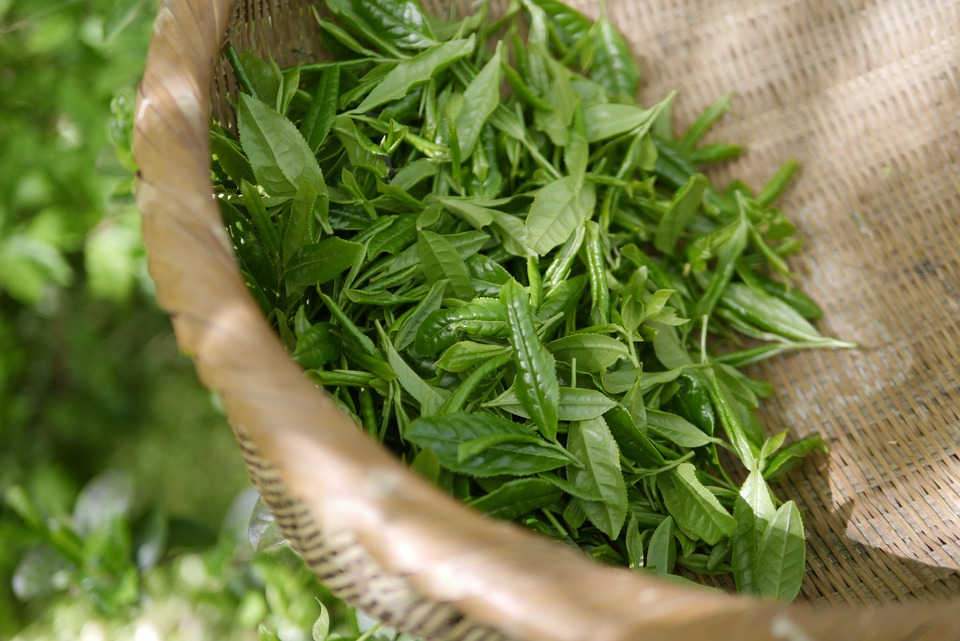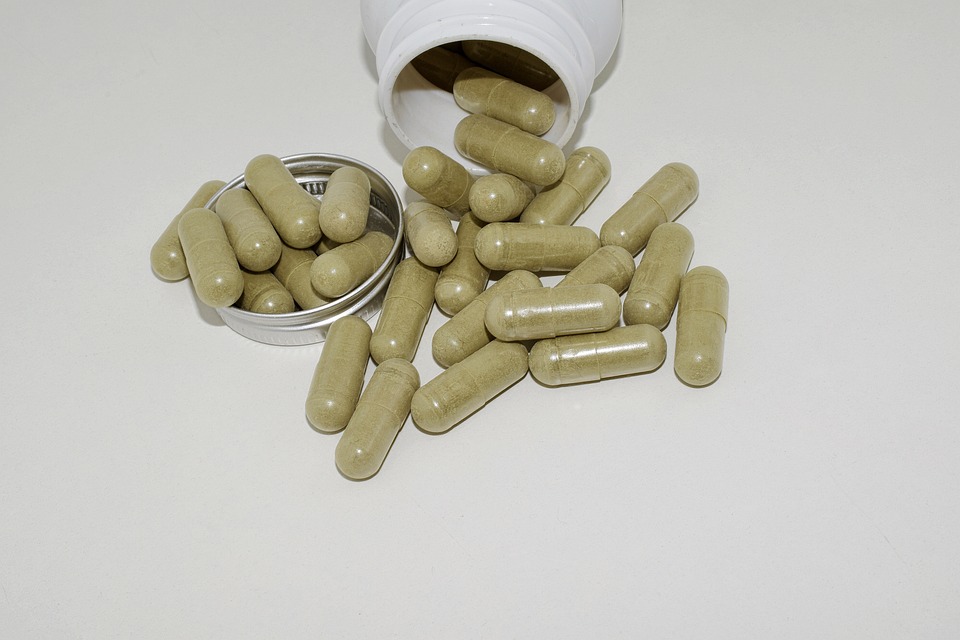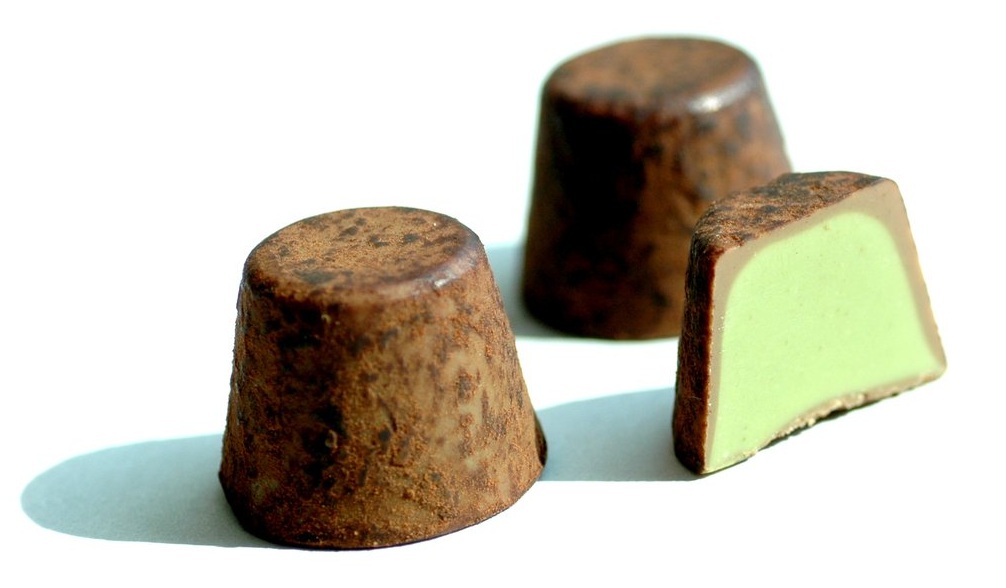May 2, 2013: The most
important natural plants with antibiotics in Europe:
Garlic - Echinacea - Oregano - Eucalyptus -
Peppermint - Onions - Ginger - Lemon / Lime - Mushrooms -
Thyme - Green Tea
from: Facebook: On the track of truth (orig. German: Der
Wahrheit auf der Spur); May 2, 2013;
https://www.facebook.com/derwahrheitauf.derspur (in 2020 not
available any more)
but has got a new place:
https://www.facebook.com/groups/1720841941507974/
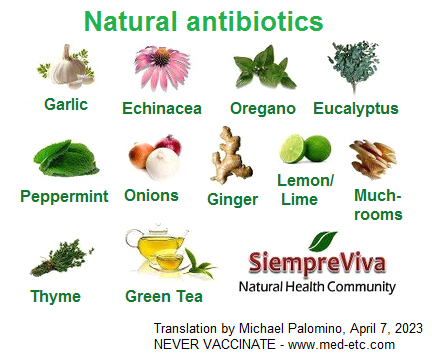
Natural antibiotics: Garlic - Echinacea - Oregano - Eucalyptus
- Peppermint - Onions - Ginger - Lemon / Lime - Mushrooms -
Thyme - Green Tea - and on the photo are missing honey and
horseradish [1]
Healing effects of green tea
-- the catechin active ingredient epigallocatechin gallate
(EGCG) is the best known active ingredient of green tea:
-- Green tea is different depending on the preparation, and
this is complicated, the content of catechins (e.g. EGCG)
varies depending on the preparation:
"In freshly brewed tea, a maximum of half of the catechins
pass from the leaves into the water, so that about 117 to 442
mg EGCG per liter are contained." [web03]
--
is effective against cancer [web01],
antioxidant [web02], stomach cancer, colon cancer [web03]
--
is healing ulcers: lets shrink myoms and
endometriosis [web02]
--
is a cell protection (against aging,
prevention against Alzheimer and Parkinson's) [web01],
antioxidant [web02], EGCG is effective against Alzheimer
[web03]
--
against obesity (stimulation of metabolism
and fat burning, against eating attacks, against abdominal
fat) [web01,web03]
--
against infections (antibiotic against
bacteria+viruses) [web01], anti-inflammatory [web02], reduces
MS with "the chronic inflammatory process in the central
nervous system" [web03]
--
against caries+bad breath (mouth cleaning)
[web01]
--
against diabetes [web01,web03], regulates
blood sugar, lowers cholesterol [web02]
--
is a care for cardiovascular system (against
heart attacks) [web01,web03], EGCG strengthens the heart
muscle cells, reduces cardiac arrhythmias [web03]
--
against skin diseases: Green tea prevents
damage caused by free radicals and thus keeps the skin young,
against wrinkles, has an anti-inflammatory effect against skin
damage caused by environmental stress [pimples? acne?],
reduces psoriasis, reduces redness in psoriasis and rosacea.
[web01]
--
reduces swollen joints (arthritis) [web02]
--
healing for the brain: against stroke
[web03]
--
has an activating effect on memory: EGCG
stimulates the formation of new nerve cells in the brain
[web02]
--
against nervous diseases [web03]
prepared lukewarm=low caffeine content - prepared hot=high
caffeine content
-- a lot of green tea can provoke sleep problems because of
caffeine, normal caffeine content is 18mg per 150ml, you can
buy green tea with reduced caffeine content (5.5mg per 150ml)
[web02]
-- green tea infused lukewarm reduces the caffeine content in
the tea, the hotter infused, the more caffeine dissolves from
the leaves [web02]
-- so you should drink the green tea only lukewarm in the
evening, otherwise you can not fall asleep [web03]
The tricks of taking green tea and green tea extract
capsules: NOT with meals [web02]
Studies have found out that:
-- The best intake of green tea extract capsules with EGCG is
with water without meal, levels of EGCG extract evels are 2.7x
higher than when taken with a light breakfast and 3.9x higher
than when taken with a strawberry sorbet (strawberry ice
cream)
-- Thus, the intake should be on an empty stomach (1.5 to 2
hours after the last meal) and wait 30 minutes until the next
meal
-- Green tea taken with meals also inhibits the absorption of
minerals from food, because EGCG binds minerals of the food
and excretes them
-- Green tea taken together with food, for example, inhibits
the absorption of iron and provokes iron deficiency, because
EGCG binds the iron molecules and then both are excreted
-- Green tea against diabetes is best drunk in the afternoon
around 5 pm after dinner (postprandial)
-- EGCG can also detoxify, because it also binds copper,
chromium, cadmium, but you have to counteract after a certain
time with the positive minerals taking mineral preparations
-- Green tea binds calcium, magnesium, so calcium and
magnesium supplements must be taken with water and not with
green tea
Hard water factor [web02]
-- what happens when green tea capsules are taken with hard
water: The EGCG binds the calcium (lime) in the water, so the
EGCG hardly works, so you have to take green tea capsules with
soft water
Factors milk, calcium drinks [web02]
-- Do not take EGCG capsules with milk, do not take them with
drinks with calcium
Vitamin C and omega-3 [web02]
-- Vitamin C and omega-3 fatty acids increase the
bioavailability of EGCG, so green tea works very well when
it's taken with lemon juice.
Vitamin C und Omega-3 [web02]
-- Vitamin C und Omega-3-Fettsäuren erhöhen die
Bioverfügbarkeit des EGCG, Grüntee mit Zitronensaft geht also
gut
Green tea: against cancer, aging, obesity,
infections, caries, bad breath, diabetes, cardiovascular
diseases, skin diseases - and green tea is like a doping for
body + brain:
Green Tea: 11 Health Benefits of Green Tea and Its Effects
(Incl. Studies)
(orig. German: Grüner Tee: 11 gesundheitliche Vorteile von
grünem Tee und seine Wirkung (inkl. Studien)
https://www.brainperform.de/gruener-tee-wirkung/ [web01]
-- drinking green tea (Camellia sinensis) is a tradition in
Asia, including China and India.
-- from the tea plant "Camellia sinensis" three types of teas
are produced: 1) green tea (from unfermented leaves), 2)
oolong tea (from partially fermented leaves), 3) black tea
(from fully fermented leaves).
-- Forms: Green tea is consumed from tea leaves, as a powder,
in capsules, as a dietary supplement, as an extract.
-- Sugar in green tea reduces the healing effect, milk in
green tea reduces the antioxidant effect
Ingredients
Green tea contains:
-- antioxidants and nutrients for the body (fat loss) and for
the brain (improving brain function): High content of
polyphenols (green tea consists of about 30% polyphoenols)
because tea leaves are not fermented -- Subgroups: Flavonoids,
catechnics, etc.
-- antioxidants reduce the risk of cancer, prevent the
formation of free radicals, strengthen the protection of
cells, molecules and other structures
-- among others, the strong antioxidant polyphenol
epigallocatechin-3-gallate (EGCG)
-- bioactive compounds, including alkaloids such as caffeine
-- vitamin K
-- stimulants: caffeine, theobromine, theophylline, etc.
-- calming ingredients (sedatives): L-theanine
-- minerals
The healing effects of green tea
-- drinking much green tea in studies means: "5 or more cups
per day"
--
against cancer: the polyphenols are
anti-inflammatory and reduce the susceptibility to cancer
--
against cancer: the antioxidants in green
tea reduce the risk of cancer with regular green tea
consumption (
18):
in men (prostate cancer -48% (
16))
and in women (breast cancer minus 20-30% (
15)
and colon cancer in men and women with minus 42% probability (
17).
Milk in green tea is not good because milk reduces the
"antioxidant value" (
19)
--
against aging+diseases: the catechins
(subgroup of polyphenols) help to prevent cell damage or to
prevent aging and diseases, prevents dementia and Alzheimer's
disease (Alzheimer's=destruction of neurons in the brain that
produce dopamine), causes prolongation of life
-- the polyphenol EGCG is suspected to be a main factor for
strong healing properties
-- catechin compounds protect neurons in the brain, resulting
in less Alzheimer's and Parkinson's disease (
20,
21,
22)
--
against overweight: metabolism is
stimulated, fat burning is increased (fat oxidation +17% (
9)) and the
person loses weight (
6,
7), but this
was not the case in all studies (
10) -
especially in the abdominal area (
36,
37) - proven
in a 12-week study: Waist circumference and abdominal fat (
38) - as a
precaution against obesity (
39) - against
eating attacks: "By helping to burn the fat selectively you
have stored in your body for energy, green tea can help you
feel fuller and maintain more consistent energy levels,
leading to fewer hunger feelings and less calorie consumption.
"
--
against infections: Catechins kill bacteria
and reduce viruses [antibiotic], reducing the risk of
infection (
23,
24,
25)
--
against caries+bad breath: catechins in
green tea act against Streptococcus mutans, regular
consumption of green tea reduces the risk of caries (
26,
27) as well as
bad breath (
28,
29)
--
against diabetes: green tea drinkers develop
less diabetes respectively the blood sugar level is lowered (
30),
a Japanese study says, persons drinking a lot of green tea,
have a lower risk of type 2 diabetes by up to 42% (
31),
other studies come to minus 18% (
32).
--
against cardiovascular disease: Green tea
drinkers reduce their risk of cardiovascular disease by up to
31% (
35)
because they improve their cholesterol and triglyceride levels
(
33),
as well as "the antioxidant capacity of the blood, which
protects LDL particles from oxidation, which is part of the
pathway to heart disease (
34)"
--
against skin diseases: Green tea prevents
free radical damage, keeping skin young, anti-wrinkle,
anti-inflammatory against skin damage from environmental
stress [pimples? acne?], reduces psoriasis, reduces redness in
psoriasis and rosacea.
Green tea is also a physical doping
--
Caffeine mobilizes fatty acids from adipose
tissue, making more energy available to the body and
increasing physical performance (
11).
-- "In two separate review studies, caffeine was shown to
increase physical performance by an average of 11-12% (
12,
13)."
Green tea is also brain doping
-- the
caffeine in green tea blocks the
inhibitory neurotransmitter adenosine in the brain, so that in
the brain, the communication between neurons is increased and
the concentration of neurotransmitters such as dopamine and
norepinephrine increases, and by this, brain function is
improving with mood, alertness, reaction time and memory
--
the amino acid L-theanine in green tea
increases the activity of the anxiety-reducing
neurotransmitter GABA [thus provoking more courage and drive]
--
the amino acid L-theanine "also increases
dopamine release and the production of alpha waves in the
brain"
--
the combination of caffeine and L-theanine
notably improves brain function, studies show (
4,
5), while
having a relatively soft, stable and productive effect being
compared with coffee with caffeine content
Warnings
-- only choose high quality brands of green tea
-- cheap brands of green tea may be excessively contaminated
with fluoride, but the benefits of green tea outweigh even
using a cheap brand.
Green tea against cancer, aging,
inflammation, diabetes, swollen joints, healing ulcers
(myoma, endometriosis), activates the brain - the tricks
with the intake: between meals - no hard water - minerals
are bound + then the green tea has hardly any effect:
When is the best time for green tea?
(orig. German: Wann ist die beste Zeit für Grüntee?)
https://www.zentrum-der-gesundheit.de/ernaehrung/lebensmittel/tee-uebersicht/gruentee-wirkung
[web02]
Summary:
-- Forms of intake are: Green tea or green tea extract in
capsules.
Healing effects of green tea
-- the catechin active ingredient epigallocatechin gallate
(EGCG) is the best known active ingredient:
-- highly antioxidant [anti-cancer, anti-aging].
-- anti-inflammatory
-- cancer blocking
-- blood sugar regulating
-- cholesterol lowering
-- reducing joint swellings (with arthritis)
-- healing ulcers: shrinks myoms and endometriosis
-- activates the memory: EGCG stimulates the formation of
new nerve cells in the brain
Prepared lukewarm=low caffeine content - prepared
hot=high caffeine content
-- a lot of green tea can provoke sleep problems because
of caffeine, normal caffeine content is 18mg per 150ml,
you can buy green tea with reduced caffeine content (5,5mg
per 150ml)
-- Green tea brewed lukewarm reduces the caffeine content
in the tea, the hotter brewed, the more caffeine is
released from the leaves.
The tricks of taking green tea and green tea extract
capsules
Studies have found:
-- the best intake of green tea extract capsules with EGCG
is with water without a meal, EGCG extract content is 2.7x
higher than when taken with a light breakfast and 3.9x
higher than when taken with a strawberry sorbet
(strawberry ice cream).
-- So the intake should be done on an empty stomach (1.5
to 2 hours after the last meal) and wait 30 minutes until
the next meal
-- Green tea taken with meals also inhibits the absorption
of minerals from food because EGCG binds and excretes
minor minerals
-- Green tea taken with food inhibits e.g. the absorption
of iron and provokes iron deficiency, because EGCG binds
the iron molecules and then both are excreted
-- Green tea against diabetes is best drunk in the
afternoon around 5 pm after dinner (postprandial)
-- EGCG can also detoxify, because it also binds copper,
chromium, cadmium, but you have to counteract with
positive mineral supplements at intervals.
-- Green tea binds calcium, magnesium, so calcium and
magnesium supplements must be taken with water and not
with green tea.
Factor hard water
-- Green tea capsules prepared with hard water: The EGCG
binds the calcium (lime) in the water, so the EGCG has
little health effect, so green tea capsules must be taken
with soft water
Factors milk, calcium drinks
-- do not take EGCG capsules with milk, do not take with
drinks containing calcium
Vitamin C and omega-3
-- Vitamin C and omega-3 fatty acids increase the
bioavailability of EGCG, so green tea with lemon juice
works well
The website of A.Vogel about green tea:
How healthy is green tea? What makes green tea so
healthy?
(orig. German: Wie gesund ist Grüntee? Was macht grünen
Tee so gesund?)
https://www.avogel.ch/de/ihre-ernaehrung/tee/was-macht-gruentee-so-gesund.php
[web03]
Summary:
History
-- the tea plant in Latin is called "Camelia sinensis", with
these leaves a green tea is produced, steaming and not
fermenting the leaf produces the green tea, so the bitter
substances and healing ingredients remain in the green tea
leaf: catechins and amino acids
-- Green tea has a great tradition in Asia as a "popular
beverage" in Tibet, China, India, Japan, etc.
-- in China it's called Chá, in India Chaj, in Japan Cha
-- drinking tea is part of Zen ceremonies
-- the colonialists from Portugal, Holland and England
brought the black tea from Asia, where it was called "Cha"
or "Tay" in Portugal, Holland and England for a long time,
until the word "Tea" ("Tee") was created
-- all other herbal infusions are since then also considered
as "tea" or "herbal tea
-- colonialists expanded tea growing areas to Indonesia,
Russia, Asia Minor, Africa, and South "America"
Variations with fermentation
first comes green tea with the variations of white tea --
the yellow tea -- then the oolong tea -- then the pu-erh tea
-- and finally the black tea
Ingredients
-- Green tea has a complex mixture of ingredients: The main
part consists of "proteins, amino acids, carbohydrates, and
minerals and trace elements such as calcium, magnesium,
chromium, manganese and iron"
Proteins: 15-20% v. dry weight)
Carbohydrates: 5-7%
Minerals and trace elements: 5%
Amino acids: 1-4%
-- traces of lipids
-- traces of vitamins
-- Alkaloids (caffeine, etc.)
-- Polyphenols (up to 1/3 of dry weight): "flavanols,
flavonoids and phenolic acids. The main components of
flavonoids are catechins, of which four types are found in
green tea:
Epicatechin (EC, 2%)
Epicatechin-3-gallate (ECG, 2-3%)
Epigallocatechin (EGC, 10%)
Epigallocatechin gallate (EGCG, 10-15%)"
Health effect
-- Natural medicine in China calls green tea "matcha".
-- Green tea has different effects depending on how it is
prepared, and this is complicated, the content of
catechins (e.g. EGCG) varies depending on how it is
prepared
"In freshly brewed tea, at most half of the catechins from
the leaves pass into the water, resulting in about 117 to
442 mg of EGCG per liter."
-- Lab measurements say: EGCG fights Alzheimer's,
strengthens heart muscle cells, reduces cardiac
arrhythmias, reduces MS with "the chronic inflammatory
process in the central nervous system"
-- Surveys say: green tea taken regularly reduces risk of
heart attacks, strokes, diabetes, obesity, stomach cancer,
colon cancer, nerve troubles (nervous disorders)
Quote:
"From the research: It depends on the concentration
Scientists at ETH Zurich [Switzerland] and the University
of Jena [Germany] have determined exactly what the
antioxidant effect of catechins consists of. They made
experiments with the nematode C. elegans. The experiment
showed that the catechins ECG and EGCG initially increase
oxidative stress in the short term. Only then are certain
genes activated, which render the free oxygen radicals
harmless.
This mechanism is already known from sports and fasting
(not eating a long time). Here, too, oxidative stress
initially increases until the body's own enzymes become
active. However, this "training program", which functions
independently of the immune system, cannot be extended at
will. Anyone who takes high doses of catechins in the form
of green tea extracts risks permanently damaging the
mitochondria - even leading to cell death. In low doses or
as a beverage, on the other hand, green tea can deliver
its beneficial properties."
-- Green tea reduces Alzheimer's + improves brain and
secondary memory with cognitive abilities. Citation:
"In laboratory experiments,
the mentioned molecule EGCG revealed amazing properties:
it can change and reduce the number of misfolded protein
bundles that can lead to the well-known clumping in
Alzheimer's disease and thus damage the nerve cells. No
other molecule has these properties. However,
epigallocatechin gallate is too unstable in its original
form to be used as a medicament. Researchers are therefore
working to modify the molecule accordingly.
Green tea can also support cognitive activities. Studies
show that drinking matcha can result in slight
improvements in the speed of perception and in episodic,
secondary memory in healthy individuals. Researchers at
the University of Basel also conclude that cognitive
abilities improve when a green tea extract is drunk
before. The effect is based on the improvement of
effective connectivity, that is, the influence that a
certain brain area exerts on another. This in turn led to
an increase in thinking performance: the test subjects
achieved significantly better test results after taking
the extract with up to 27.5 grams of tea per 500 ml,
especially working memory improved. As a limitation, the
very small test subject number of twelve participants must
be mentioned here."
-- Green Tea Reduces Dementia. Quote:
"Other studies from Asia indicate links between frequency
of green tea drinking and reduced risk of dementia.
According to a Japanese study of elderly people 65 and
older, drinking five cups of green tea a day is associated
with a 27 percent lower likelihood of dementia. However,
the study does not answer whether there are also general
conditions better with green tea drinkers and if the
conditions are different from country to country."
-- Green tea reduces cancer.
Quote:
"Due to its antioxidant catechins, green tea is often said
to have a cancer-protective effect. Evidence suggests that
EGCG and ECG in particular can deactivate free radicals,
protecting cells from damage to DNA. Observational studies
suggest that high green tea intake is associated with a
reduced risk of ovarian, breast, prostate, lung, and
colorectal cancers, as well as a delay in the onset of new
cancers. According to a study from Japan, ten cups a day
delayed the onset of cancer by almost eight years in women
and by more than three years in men. However, the study
was ultimately unable to rule out whether other factors,
such as a generally healthier lifestyle, had an influence
on the appearance of cancer.
It's also possible to take higher dosages which are not
reached by normal tea drinking, and these high dosages
show success. Daily intake of green tea extract pills
addionally to 10 cups of green tea are reducing the risk
of polyps in theintestine. This was the result of a study
from 2008.
A meta-analysis by the Cochrane Association in 2009
concluded that the results to date are insufficient and
also contradictory with regard to tea drinking alone as a
preventive measure. However, the effectiveness of the
antioxidants contained in green tea have been proven.
There is also evidence that drinking green tea itself may
have a protective effect with regard to the development of
certain types of cancer. However, clinical studies are
missing that could say clearly that this would work
without additional movement and nutritions measures.
Moreover, most of the research on this topic comes from
Asia, where tea drinking has traditionally been a much
greater priority than in Europe, which could fake the
results."
-- Green tea reduces aging: "Vascular protection.
A long-term study from Japan concluded that five cups of
green tea per day was associated with a 16 percent lower
mortality rate. When it came specifically to
cardiovascular diseases resulting in death, the risk was
even 26 percent lower. Women also benefited the most, with
their probability of dying from a heart attack falling by
as much as 31 percent. But here, too, a generally
healthier lifestyle of tea drinkers could be partly
responsible for the effects. It is important, however,
that green tea is never taken together with milk because
the caseins from milk is blocking the effects of the
catechins."
-- Green tea for weight loss: Quote:
"According to a study of Cochrane Association in 2012,
there is a statistically non-significant connection
between drinking green tea and weight loss. However,
according to a study from Taiwan from 2016, a 12-week
treatment with high-dose green tea extract (856.8 mg/day)
in 115 women reportedly resulted in significant reductions
in weight, abdominal circumference, and a decrease in LDL
cholesterol. No side effects occurred."
-- Caffeine content in green tea: total mess. Quote:
"Although green tea leaves contain about five times more
caffeine than coffee beans, green tea can be deluted so it
contains less of the alkaloid than coffee. The longer the
tea is infusing, the more tannins are released and the
more caffeine is bound. In addition, one liter of coffee
requires more coffee beans (about 50 grams) than tea
leaves (about 13 grams) for the tea. This means that
coffee contains double to triple the amount of caffeine.
The caffeine in tea is also released more slowly than in
coffee, but also lasts longer. Capsules with green tea
extracts, however, come to more caffeine and can lead to
sleep disturbances and cardiac arrhythmias.
Tea type/caffeine content
per 236 ml
Black tea: 64 to 112 mg
Oolong tea: 29 to 53 mg
Green tea: 32 to 37 mg
White tea: 24 to 39 mg
In addition to the choice of tea variety, there are
sometimes complicated relationships between the more or
less stimulating effect of the tea, which is significantly
altered by the growth stage of the leaf, the time of
infusing and, of course, the dosage. When infusing for a
short time, the green tea contains more caffeine, which is
no longer bound to tannins and is absorbed very quickly
when the tea is consumed. If infusing a longer, after
about four to eight minutes, the tannins as well as the
other active ingredients of the tea gradually dissolve.
The tannins have the property of partially preventing and
delaying the absorption of caffeine in the stomach and
intestines. This longer infusion is much stronger in
aroma, but the caffeine it contains has a weaker or
delayed effect.
Sensitive people can therefore still be disturbed in their
sleep by an overdosed "Afternoon Tea" even late at night.
For sure, a long tea brewed for four to eight minutes can
never have a calming effect, because the tea leaf simply
does not contain any calming substances and such
substances cannot be produced even if left to brew for a
longer period of time.
The amount of caffeine can be reduced by pouring a small
amount of boiling water over the amount of tea herb
intended for brewing and straining it after half a minute.
After this process, the tea is poured as usual. By
rather weak dosage of the tea herb (max. one level
teaspoon per large cup) and longer infusing (six to eight
minutes) - of course without adding sugar or artificial
sweeteners - we obtain the most digestible tea. The tea
prepared only by short infusing time is thus "milder" in
aroma."
-- Green tea interactions:
Quote:
"As with all bioactive substances, polyphenols can also
interact with medications. In larger quantities (i.e. from
50 cups per day) EGCG even has a damaging effect on the
liver, kidneys and intestines. In addition, the tannins
form solid compounds with plant iron, which can lead to
the iron from plants (in contrast to iron from animal
sources) not being absorbed as well, especially in vegans,
patients with anemia or people with existing iron
deficiency. Green tea should therefore be drunk between
meals - or the leaves should be consumed at the same time,
because they contain a relatively large amount of iron. In
addition, the tannins can inhibit the absorption of drugs,
such as antidepressants, antihypertensives, or even cancer
drugs.
The German Cancer Information Service also warns against
exaggerated expectations. This is because green tea can
also lead to interactions with cancer drugs such as
Sunitinib. The results of the research are contradictory
also here, persons with cancer should coordinate the green
tea intake with their medical doctor. EGCG, as an
antioxidant, could "weaken the effects of chemotherapy or
radiation therapy if consumed in excess," because "the
effects of these drugs rely in part on reactive oxygen
radicals damaging cancer cells," which could be
counterproductive if consumed in large amounts."
[Well, pharma has a healing quote of cancer of only 2% for
5 years - take natural medicine against cancer, green tea
is one element of it].
Products with green tea in it:
Products with green tea: capsules, biscuits and lotions
https://www.grüntee.de/produkte.htm [web04]
Green tea in food:
-- vegetable juices, fruit juices
-- green tea can be added to bread, cakes, biscuits, even
just because of the green color
-- Green tea in tablets, capsules, powder
Green tea in care products: protective function for the
skin:
-- green tea in washing lotions, soaps, face creams, body
lotions and cosmetics, in shampoos, in conditioners
-- with green tea extracts or with pure ingredients
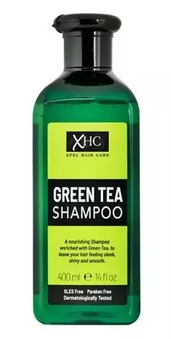

Green tea shampoo [12] - green tea soap [13]
Green tea in care products: Oral cavity + dental care:
-- Green tea toothpaste
-- Green tea chewing gum
-- Green tea is also a mouthwash for teeth and against bad
breath, first in Japan, now all over the world
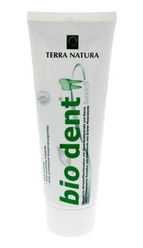
Toothpaste with green tea in it "BioDent" [11]
[11] Quote: The toothpaste "Biodent basic contains an
active ingredient combination of myrrh, sage, clove, green
tea and olive leaf extract, which contributes to the
health of the oral flora."
[For the gum, eat half an apple per day].


